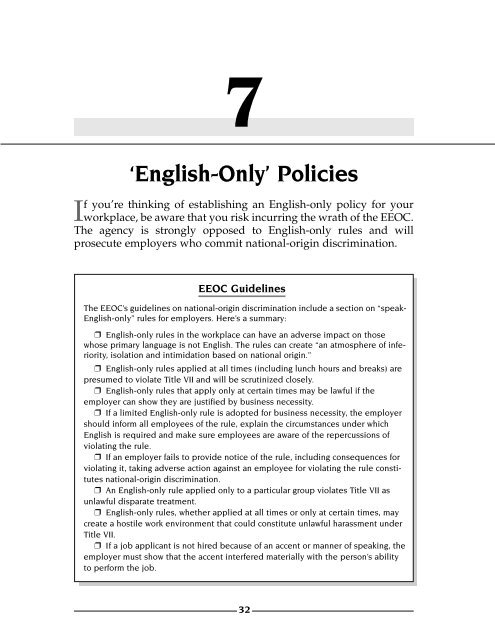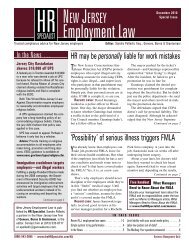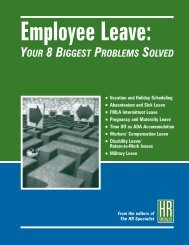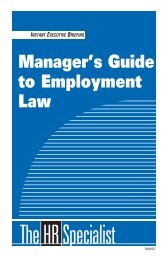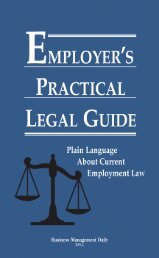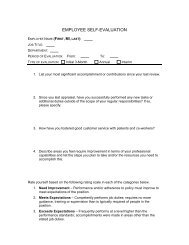sample policies
sample policies
sample policies
Create successful ePaper yourself
Turn your PDF publications into a flip-book with our unique Google optimized e-Paper software.
7<br />
‘English-Only’ Policies<br />
If you’re thinking of establishing an English-only policy for your<br />
workplace, be aware that you risk incurring the wrath of the EEOC.<br />
The agency is strongly opposed to English-only rules and will<br />
prosecute employers who commit national-origin discrimination.<br />
EEOC Guidelines<br />
The EEOC’s guidelines on national-origin discrimination include a section on “speak-<br />
English-only” rules for employers. Here’s a summary:<br />
❒ English-only rules in the workplace can have an adverse impact on those<br />
whose primary language is not English. The rules can create “an atmosphere of inferiority,<br />
isolation and intimidation based on national origin.”<br />
❒ English-only rules applied at all times (including lunch hours and breaks) are<br />
presumed to violate Title VII and will be scrutinized closely.<br />
❒ English-only rules that apply only at certain times may be lawful if the<br />
employer can show they are justified by business necessity.<br />
❒ If a limited English-only rule is adopted for business necessity, the employer<br />
should inform all employees of the rule, explain the circumstances under which<br />
English is required and make sure employees are aware of the repercussions of<br />
violating the rule.<br />
❒ If an employer fails to provide notice of the rule, including consequences for<br />
violating it, taking adverse action against an employee for violating the rule constitutes<br />
national-origin discrimination.<br />
❒ An English-only rule applied only to a particular group violates Title VII as<br />
unlawful disparate treatment.<br />
❒ English-only rules, whether applied at all times or only at certain times, may<br />
create a hostile work environment that could constitute unlawful harassment under<br />
Title VII.<br />
❒ If a job applicant is not hired because of an accent or manner of speaking, the<br />
employer must show that the accent interfered materially with the person’s ability<br />
to perform the job.<br />
32


